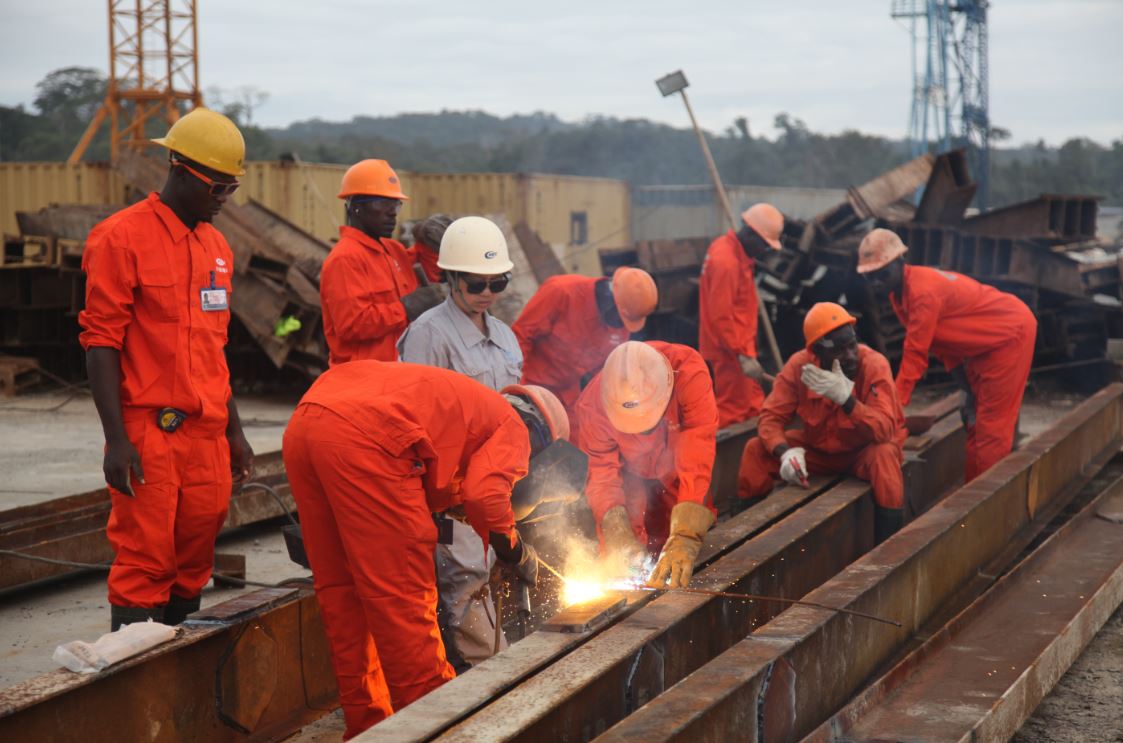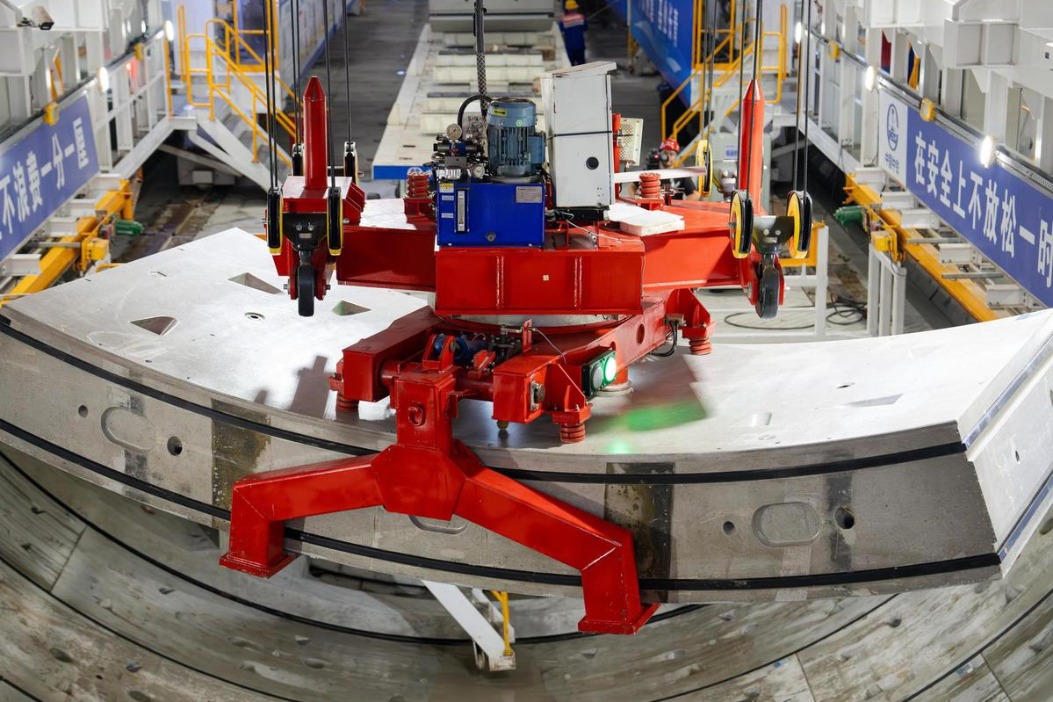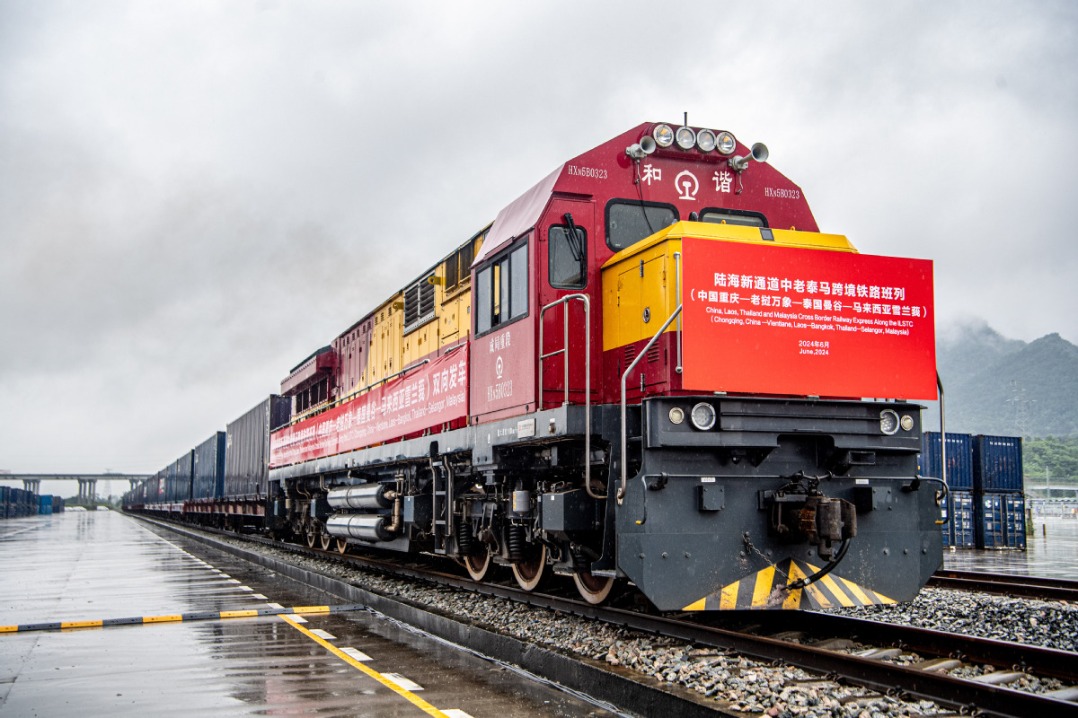Building infrastructure for the world


Rail transit, housing, ports... CHEC gains strength with projects worth $30 billion
China Harbor Engineering Co, a State-owned enterprise specializing in building port, marine engineering, dredging, railroad and airport construction projects, will begin building the Bogota Metro Line 1 project in April 2020.
In addition to CHEC, the largest single project in Colombia will involve domestic and Canadian partners.
CHEC, a subsidiary of China Communications Construction Co, formed a consortium with companies such as China Railway Rolling Stock Corp, Xi'an Metro and Bombardier Inc to win the bid for the Bogota project, whose contract value is $5.02 billion. The Colombian government announced the contract award in mid-October.
Lin Yichong, chairman of the Beijing-headquartered CHEC, said this investment project is the largest contract in capital volume, dominated by CHEC, and also the first breakthrough of the group in integrated services of the whole life cycle of the rail transit sector.
"The bidding organization of this project gives full play to CHEC's ability to allocate, dominate and coordinate global infrastructure resources and the company's competitiveness in the infrastructure field, which is in line with the country's efforts in advancing reform of State-owned enterprises and enriching the content of SOEs' 'go-global' strategy," he said.
Bogota Metro Line 1 is almost 24 kilometers long with 16 stations. CHEC will construct the project through the model of "integration of investment, construction and operation".
The project comprises mainly of investment, financing, design, construction, procurement, operation and maintenance, and its franchise period is about 28 years.
After its completion, the Bogota Metro Line 1 project will become the trunk line of Bogota's public transportation and the main artery of passenger transport. It will provide great convenience for commuters in Bogota, and have a far-reaching impact on the future urban layout as well as long-term development of Bogota, according to Lin.
"This big-ticket project will drive the development of CHEC in the whole industrial chain of rail transit projects, and enhance the company's brand influence in the Americas and other parts of the world," said Li Jin, chief researcher at the China Enterprise Research Institute in Beijing.
After completing an expansion project for Namibia's Walvis Bay port in August, CHEC sealed a deal to build an indemnificatory housing project to build 1,650 houses in five phases with the Jamaican government earlier October.
Apart from building infrastructure projects in many parts of the world, CHEC signed a $629 million financing agreement with the China Development Bank to build Lekki Deep Sea Port facility, about 60 kilometers from Lagos, a major city in Nigeria.
The loan will provide CHEC, and Singapore-based retail and industrial conglomerate Tolaram Group, with the funds needed to build the project. The port will have a water depth of 16.5 meters and two berths of 680 meters in length each. It will have sufficient room to accommodate container ships of up to 18,000 TEU(twenty-foot equivalent units).
In addition to the funding from the State-owned CDB, CHEC has committed to an equity investment of $470 million. It will operate the facility under a 45-year concession agreement, after the port's completion.
Once the port is completed, it will raise the container handling capability of the region surrounding Lagos, alleviate the port congestion, cut logistics costs of international trade in the region, said Lin from CHEC.
It is also practical to build a flexible investment environment, convenient logistics and transportation networks in West Africa, he said.




































